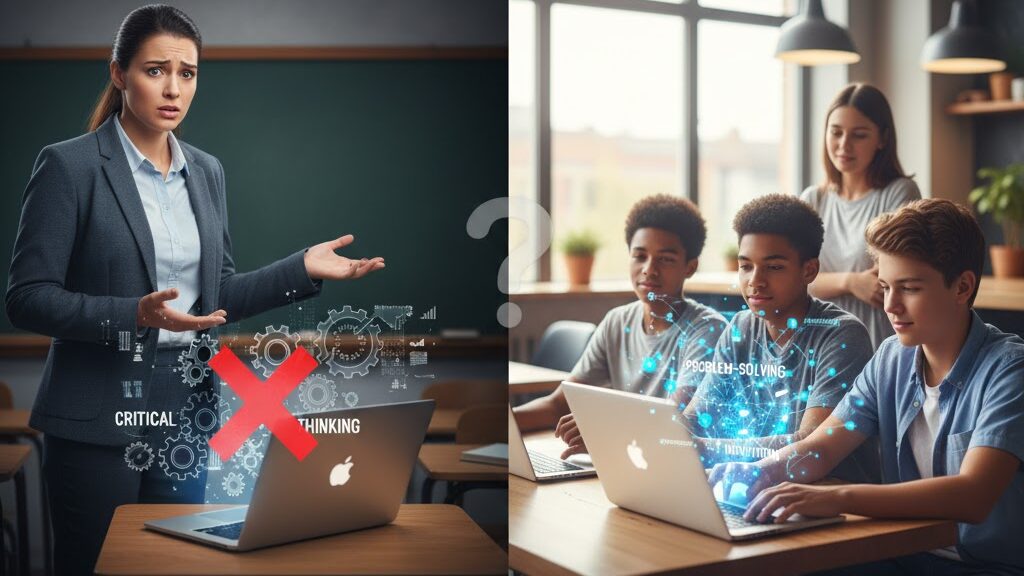
Source
Education Week
Summary
Alyson Klein reports on the growing divide between teachers and students over how artificial intelligence is affecting critical thinking. While educators fear that AI tools like ChatGPT are eroding students’ ability to reason independently, many teens argue that AI can actually enhance their thinking when used responsibly. Teachers cite declining originality and over-reliance on AI-generated answers, expressing concern that students are losing confidence in forming their own arguments. Students, however, describe AI as a useful study companion—helping clarify concepts, model strong writing, and guide brainstorming. Experts suggest that the key issue is not whether AI harms or helps, but how schools teach students to engage with it critically. Educators who integrate AI into lessons rather than banning it outright are finding that students can strengthen, rather than surrender, their analytical skills.
Key Points
- Teachers fear AI use is diminishing critical thinking and originality in student work.
- Many students view AI as a learning aid that supports understanding and creativity.
- The divide reflects differing expectations around what “thinking critically” means.
- Experts recommend structured AI literacy education over prohibition or punishment.
- Responsible AI use depends on reflection, questioning, and teacher guidance.
Keywords
URL
Summary generated by ChatGPT 5

